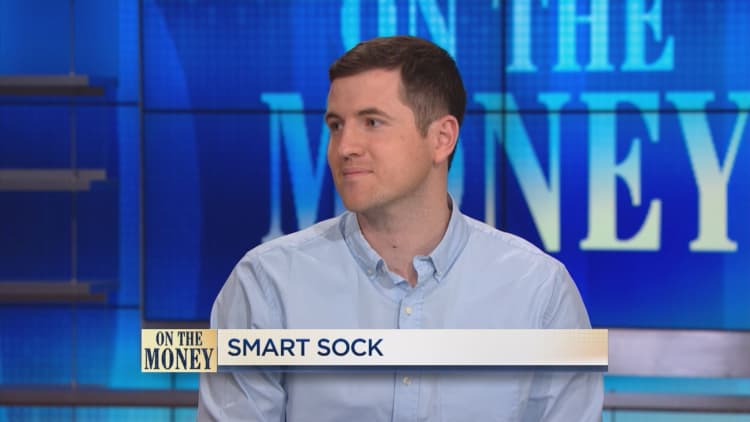
Owlet wants new parents to get some sleep with its high-tech baby accessory.
The Utah based company is out with a new and improved smart sock for babies that tracks their heart rate and oxygen levels while they sleep. According to Owlet, its new version fits more snugly and can be worn on either foot.
The new design also lets the baby's toes breathe. The gadget's defining feature—a sensor placement within the sock—has been improved, and there is now a smartphone application that logs and tracks the data collected.
"It's called pulse oximetry," Owlet CEO and co-founder Kurt Workman told CNBC's "On the Money" this week. "So it's that little red light that they put on your finger in the hospital, and it just shines a light through the skin and can measure the heart rate and oxygen."
Should the child's oxygen level or heart rate exceed an acceptable range, the base monitor sounds an alarm.
Workman has plans to partner with other companies, and integrating Owlet with other devices in ways that will link parents to medical professionals.
"We're collecting the largest data base of infant health that's ever existed, so we believe that that data base will solve some of the biggest challenges with infant health," he said.
Last year, the company sold about 100,000 monitors, which are available at Buy Buy Baby. They will also be available on Amazon by early summer, and Target will begin selling the device by the end of the year. The monitor and sock are sold together and cost $299.
Workman's own personal experiences were the genesis of the product. "My wife has a congenital heart defect. She's had 3 heart surgeries and we were worried that our son would have the same thing," he told CNBC.
Meanwhile, the company is also in the process of seeking FDA approval as a class 2 medical device, which may help boost them in the health care space. Eventually, Workman anticipates Owlet could be sent home with at-risk babies being discharged from the hospital.
However, Workman was clear that the device should not give parents a false sense of security, and is not a substitute for vigilant parenting. "You just want that extra peace of mind, and Owlet gives it to you in the home and you can check in from anywhere."
On the Money airs on CNBC Saturday at 5:30 am ET, or check listings for air times in local markets.


